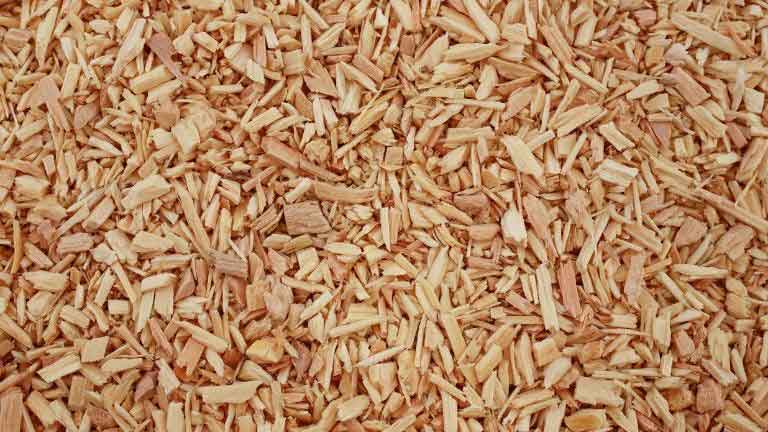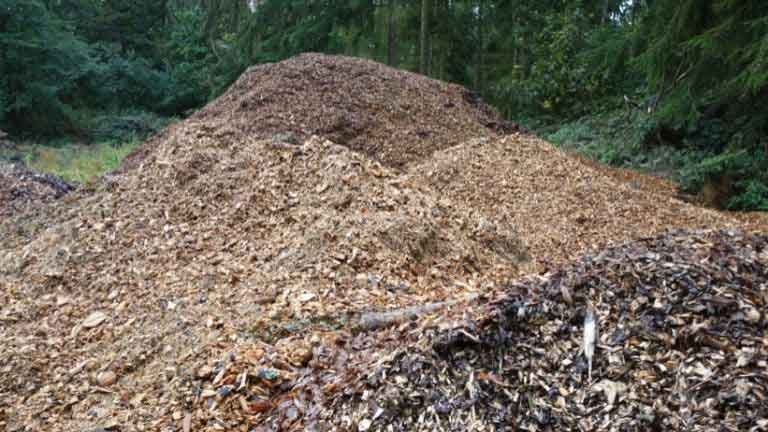The amount of wood chips that are produced each year is staggering. From the number of trees being cut down for paper and lumber to people who are using their own yard waste to make compost, this material has become a valuable commodity.
But before you start filling up your backyard with piles of wood chips, there are some things you should know about how they work in your garden and what advantages or disadvantages they may have on your soil quality.
Can I Use Wood Chips For Compost?
Yes, you can use wood chips for compost in your garden. However, wood chips take more time than the regular waste that we use for compost. This is because wood chips are very dense and heavy, so it takes longer for the microorganisms to break down all of that material.
What Are The Advantages Of Using Wood Chips For Compost?
Wood chips can work wonders in your garden by providing a constant nutrient supply over time. They also help with drainage issues like standing water. Here are some of the notable advantages of using wood chips for compost-

Wood Chips are Easily Accessible
Wood chips are easy to find and as a result, they’re the easiest form of waste for you to use in your compost. It’s important that we have access to different materials because microorganisms work differently on different types of material. And if there isn’t enough diversity in our compost pile, then it could become anaerobic and create some serious odors.
Wood Chips are Cheap
Wood chips are extremely cheap, allowing everyone to use the material for use. They also won’t take up too much space in your garden without any work from you!
Wood Chips have an Abundance of Carbon
The carbon to nitrogen ratio is very important when creating compost. All the microorganisms in our pile need a balance between these two nutrients, but wood chips are high in carbon so they help create that perfect mix of ingredients!
Wood Chips Have Less Nitrogen
Many people worry about adding too much nitrogen into their compost because it can lead to a buildup of ammonia or nitrate in the pile. That is why wood chippers are a great choice because they have less nitrogen than other types of waste, like leaves!
Wood Chips Have Less Water Content
When you add too much water to your compost pile then it could become anaerobic and create some serious odors. It’s important to keep the moisture content balanced in order to prevent this from happening. Wood chips have less water than leaves, which means added protection for your compost pile!
Wood Chips Are Rigid
One of the major complaints that people have about their piles is that they get too hot and don’t cool down quickly enough. Adding wood chips can help to provide some ventilation and keep the pile at a more manageable temperature. This helps to create better compost.
What Are The Disadvantages Of Using Wood Chips As Compost?
While wood chips can enrich your soil, there are some disadvantages of using wood chips as compost. Let’s learn them-
High Carbon Can Cause Issue
The high carbon content in wood chips can cause a lot of problems. Not only is it difficult to keep the pile at an acceptable temperature, but the microbes that are responsible for breaking down organic material need some oxygen too! So, you need to use wood chips cautiously so that you don’t end up using up excessive wood chips in the compost pile.
Could Harm Microbes
Wood chips are difficult to break down. Plus, they are high in carbon and low in nitrogen. Combination of these makes it hard for microbes to break down the wood chips.

Too Many Lignins Can Cause Issues
Wood chips are high in lignin. The presence of too much lignin can cause issues with things like the pH balance and nutrient availability as well as create a film on top of your pile that blocks light from reaching the lower levels.
It Takes Too Long For Wood Chip To Compost
The time it takes for wood chips to compost can vary. If you’re at the beginning of the season, it’s okay because there might not be a lot to break down yet. But if your pile is getting large and old, it could take months before microbes have had enough time to finish breaking down all that wood chip!
Only Wood Chips Doesn’t Make Compost
Due to the high carbon and low nitrogen content in wood chips, they don’t decompose well. In some cases, you may see wood chips not decomposing for years as well.
What Type Of Wood Chips Should I Use?
If you have access to fresh, clean wood chips from your local arborist then by all means use them! But if they are not available or too expensive, try looking for the next best thing, which may be chips from a local lumber yard.
If you have a large garden with lots of trees, you may consider investing in a good wood chipper so that you can generate wood chips in your backyard at the lowest cost.
How Long Does It Take For Wood Chip Composting?
The length of time it takes for chips to compost will vary depending on the type of wood chip you are using, how much organic matter is in your yard and what condition your soil is in.
A good rule of thumb: if there’s plenty of grass clippings or leaves mixed in with the chips then they may be ready within a few weeks- otherwise it may take a month or two.
For faster results, you should use the smallest possible chips. And using a tumbling composter can also help.
Conclusion
Wood chips have a lot of benefits but they also come with some drawbacks. It’s important to consider all the factors before deciding whether or not you want to use wood chips in your compost pile.
For example, if you live in an urban area and don’t have access to much space for gardening then it may be best not to use wood chips because they take a long time to decompose and can cause issues such as attracting pests.
If however, you do have enough room on your property and find that using wood chips is beneficial even though there are some disadvantages associated with them then go ahead!
Leave a Reply